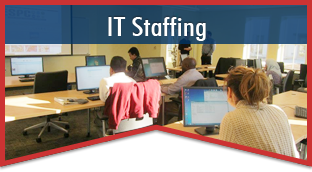Interview Tips
A job interview is not something we do every day,Effective interviewing requires a particular role, as does working in your profession. Being effective in any new role takes some thought and preparation. The small amount of time and effort invested now can pay significant returns in income, quality of life and satisfaction. Prepare the Interview plan that identifies the key requirements of the job then practice interview questions, and then helps you to prepare for your self.
How to Project yourself in an interview Sell yourself!
Learn as much as possible about the position, the company, and the interviewers themselves. The more detailed information you have about the company and the position, the better prepared and more interested you look. Go to the library and visit the company's web site. Employers want someone
who wants to work for them. Demonstrate this by:
-
PREPARING QUESTIONS. No matter how thorough the employer is in the interview, you must ask questions. This demonstrates interest and thinking ability.
-
ASKING, "WHAT IS THE NEXT STEP?" Tell the employer you were intrigued prior to the interview and are now even more.
-
EMPHASIZING AREAS OF YOUR BACKGROUND. Think of specific examples that demonstrate this. Sell yourself and your abilities through play back.
Frequently Asked Interview Questions
- Here are few commonly asked questions in an interview. Consider carefully how you would answer:
- Why are you willing to leave your current employer?
- What do you know about this position and company? Why are you interested?
- What are your short-term and long-term goals?
- How do you feel about your current supervisor?
- What are your strengths?
- What are your weaknesses?
- What are you currently looking for in salary? Why?
- What information is important to you in making a decision about this job change?
- What questions do you plan to ask the employer either about the job, company, or other things?
- Who have you learned the most from? What was it? Why was it important?
- What could be improved in your boss?
- What do you like about your current boss?
- When are you available to start?
- What would you change here?
Interview Presentation Tips
Presentation gives the right impression. You can answer all the technical questions correctly but if your presentation is poor, it may be the deciding factor on whether or not you are offered the position.
- Offer your hand upon introduction and shake hands firmly.
- Display reserved confidence. Let the interviewer control the interview.
- Smile. Be enthusiastic and positive.
- Feel free to ask for clarification before answering a question.
- Establish and maintain eye contact with the interviewer
- Refrain from criticizing current and past employers
- Volunteer information about your skills and experience that match the position
- Show that you are willing to work, perform quality work and respect deadlines
- Emphasize what you can do for their company
- Show that you can assimilate and work well with others If you want the job, say so!
How to Aviod Misconceptions of Interview
- Prepare in advance for your interviews:
A. Have an in-depth understanding and practice presenting your skills, talents accomplishments.
B. Conduct research on the company, e.g., products and services, markets, corporate culture, size, and locations.
C. Understand the interviewing strategies used by employers, including ompetency-based behavioral interviews, to respond appropriately to each employers style of interviewing.
D. Prepare your questions in advance.
- Dress appropriately.
- Arrive ten minutes early for your interview.
- Show a sincere interest in the company and position.
- Express yourself clearly and with confidence, however, without conceit.
- Convey enthusiasm, and a sense of pride and dedication in your work.
- Convey tolerance and team work.
- Be sure to look at your interviewer while talking.
- Focus on what you can contribute to the organization rather than what the employer can do for you. Don't ask about salary or benefits until the employer brings up this topic. Your initiation of this subject shifts the emphasis from what you can do for the company to what the company can do for you, therefore, it is usually better to wait until the employer initiates the subject, or until the second interview or subsequent interviews. It is appropriate to ask about salary ranges and benefits, and/or initiate a salary negotiation when the timing is right.
- Don't place blame on or be negative about past employers.
- Consider how you answer; don't rush to have an answer without understanding the question, or display defensiveness when a tough question has you stumped.
- Don't volunteer more information than is needed.
- Close the interview on an assumptive note: indicate the job looks like a good fit and you feel you can make a contribution to the organization; end by asking about the next step.
- Keep a positive attitude at all times - most offers are not extended on the spot.
- Follow up appropriately (strategic follow-up is best) after each interview.
Major types of Interviews:
1. Structured Interview with Layered Questions: This type of interview is common among skilled interviewers. The interviewer asks a series of questions, often overlapping, designed to gather information about each of the major Employer Concerns, and thus the likelihood of a fit. This overlapping - or layering - will also show up any discrepancies in a candidate's story. Keep in mind that it is not enough to answer just the question about Skill A; instead you need to also recognize and address the competency concern behind the Skill A question. Our example here uses the competency concern: Can you do the job? This type of layering would also apply to the other 4 major Employer Concerns - each with its own set of layered questions intermixed throughout the interview.
2. Situational/Performance Interview: In this type of interview, the interviewer requests the candidate to role play one of the job functions to assess specific skills, or you could be given a specific hypothetical situation or problem and asked how you would handle it or to provide a recommendation or solution. Situational interviews can be particularly problematic in that you may not have all of the facts from the hypothetical situation in order to recommend a solution or course of action.
3. Stress Interview: A Stress Interview is generally intended to put the candidate under stress and assess reactions under pressure or in certain situations. Although scenarios vary, some examples are: Candidate receiving negative feedback from interviewer Unusual questions or environment (including luncheon interview) Panel interview with a group of interviewers Group interview with a group of applicants Keep in mind that although each of the above scenarios will undoubtedly be stressful, not every interview with one of the above elements is necessarily intended to be a Stress Interview. For example, a panel interview could simply be viewed as the most efficient way to involve several interviewers, rather than to assess a candidate's ability to handle stress with group presentations.
4. Relaxed Role Interview: This type of interview is casual and relaxed; it is intended to get the candidate talking and too friendly so the candidate will reveal more information than they might otherwise. (This may also be the approach of an inexperienced interviewer, rather than a specific strategy.) Too much information too soon could screen you out.
5. Reverse Role Interview: In the Reverse Role Interview, the interviewer is unprepared, short on time, hurried, distracted, or simply unskilled at interviewing. The end result is that the interviewer does not ask the appropriate questions - without which, they may not understand your ability to perform successfully in this job or other factors that indicate it is a good fit.
6. Assessment Instruments (Testing): Various types of Inventories (commonly referred to as tests) may be used to determine if this a likely fit. Among these are: Personality inventory (assesses personality types) Aptitude inventory (assesses aptitudes in certain skill areas) Interest inventory (assesses interests in various occupational categories) Combination instruments (combines any of the above)
7. Combination Interview: A Combination Interview is simply a combination of two or more of the above types of interviews. This could occur within the same interview, on subsequent interviews, or both. |
|





